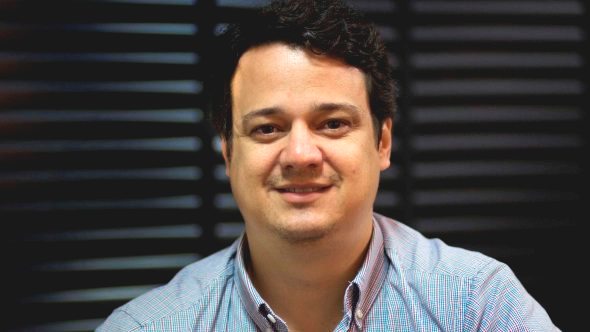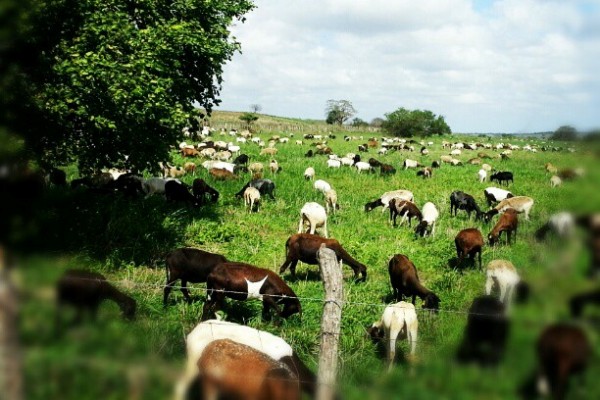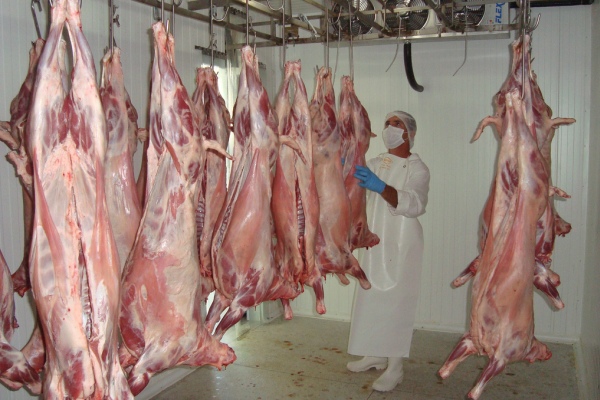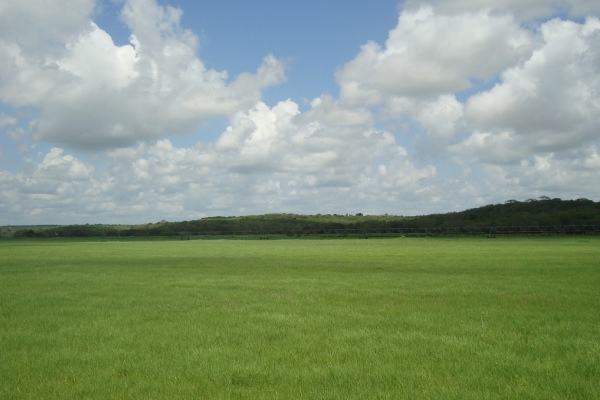Lanila Agropecuária: Cattle Breeding in Rio Grande do Norte
Gustavo Rocha, President of Lanila Agropecuária
Lanila Agropecuária is a company specialized in cattle breeding. Gustavo Rocha presents the company and the agriculture and livestock sector in Rio Grande do Norte. He also shares his vision for the future and discusses partnerships and investments in the state and in Brazil.
Interview with Gustavo Rocha, President of Lanila Agropecuária

I would like to begin this interview with an introduction to the agriculture and livestock breeding sector in the state of Rio Grande do Norte.
Brazil exports beef, chicken and pork but it imports mutton and lamb. Even though we do raise these animals, we do not produce enough to meet the demand. Having recognised this, we have decided to begin by supplying the local market for the moment.
Rio Grande do Norte is a small state; it is one of the smallest states of Brazil. We have an established sugar industry here. We have a factory here that produces sugar and exports it to Africa. In terms of the livestock sector, we have always had excellent cattle in Rio Grande do Norte, with excellent breeds of superior genetics. Due to our history and our population we have had the opportunity to raise various small ruminants, mainly sheep and goats. This state has the advantage of superior genetic conditions in terms of sheep and goats for the kind of production that we specialise in.
Now to introduce your company, how was Lanila founded? What projects are you working on at the moment?
Our business group has investments in other areas but we decided to invest in agriculture and particularly in sheep because we have generations of experience in our family, working in the livestock sector, so this business is literally in our blood. We also saw that Brazil was importing a large quantity of ovine meat. Brazil exports beef, chicken and pork but it imports mutton and lamb. Even though we do raise these animals, we do not produce enough to meet the demand. Having recognised this, we have decided to begin by supplying the local market for the moment. We want to ensure that the local market is well supplied with quality produce and to do this we had to bring in animals from South Africa; we imported crossbreeds raised in South Africa and also breeds from Canada. We crossbred these animals with the native animals here in the region and we began this project. Now we have one of the largest productions in the country, supplying the local market and soon we hope to be able to expand our production to be able to supply a wider market here in Brazil. This industry is only in its initial stages, it is very similar to how the beef, chicken and pork industry was 20 years ago in Brazil.
When did you begin this project?

We began to breed sheep 10 years ago, and we are still investing in this process because we need to increase our livestock. Our growth is organic; the animals need to adapt to the region, and it is a slow process because it is limited by biology. We are seeing good results here, for one thing because the north eastern region of Brazil is a tropical region and animals are more productive in tropical climates. Whilst animals in temperate climates enter phases at certain times of the year where the females are not on heat, female sheep here in the tropical climates are on heat all year round. Therefore we have managed to achieve twice the productivity with our sheep than New Zealand has for example, and New Zealand is the main exporter of lamb in the world. Obviously we don’t yet have the productivity in terms of genetics that they have in New Zealand but we are getting there.
On a national level, what sets your company apart from others in Brazil?
In this specific sector of sheep and goats, the major regions such as Rio Grande do Sul and the southern states have a great advantage over the north east, the central east and the south east, which just don’t have the same quantity of livestock. Here we have the conditions to produce livestock for these regions; today the north east is providing the stepping stones for these regions to produce livestock. The southern region has a long history of wool production and not of meat production; however all of their production system is now changing towards meat production. As I just said, the north eastern region has excellent tropical conditions for increased productivity due to the equal amount of day time and night time. Today it is much more efficient to breed sheep and goats in the north east because of the culture, the genetics we have acquired and the huge consumer market here due to the fact the population in the north east has a much better income nowadays. Therefore this region has become the ideal place to develop this sector.
Is Lanila looking for any kind of investment or partnership at the moment, whether national or international?
Nationally, there is a large company in Bahia, with whom we have a technical working agreement; we are looking to create an operational agreement with them as well. There is also a company in New Zealand with whom we are hoping to come to an agreement regarding genetic improvement. This is a large company that manages the majority of the livestock in New Zealand. Therefore we are looking to have a partnership with them so that we can implement this kind of technology for the genetic improvement of livestock here in our project.

Let’s talk about the challenges that your company faces, I expect there are quite a few.
There are many challenges. Brazil is a country that is continuing to grow and modernise and our institutions are getting stronger. In terms of meat production, up until recently Brazil was a country where a large part of the territory was at risk of foot and mouth disease. This meant we couldn’t export to the largest importers, countries like Japan and other countries that are very meticulous. Now Brazil is soon to be declared as free of foot and mouth disease due to vaccinations we have carried out and so this huge market is going to open up to us. The north eastern region was one of the last to catch up on these vaccinations but now this region is also free of the disease. So the great challenge is to make sure we are up to exporting to these countries and this is soon to begin happening. With this declaration we are able to reach these markets that pay a better price for our product.
Another challenge we face, which I would say is a significant challenge, is the matter of financing. However today in Brazil there are development funds, in the north east there is the FNDE, offering negative interest rates, so here the problem of finding credit now has a solution. If we go back five years, the interest rates that these banks were charging for this kind of financing were high because the index followed inflation but at the moment the interest rates are fixed at lower than inflation and today inflation is not that high. This has obviously helped us in terms of getting credit today.
What kind of results would you like to see for your company in the next 2 or 3 years?
In my sector the next 2 or 3 years is a very short amount of time. I would say that this sector evolves from one generation to the other. However, in the short term our goal is to expand our client list here and in other states, always looking for the niche markets that pay more for a good quality product. This is something that we are already beginning to achieve as the purchasing power of this region increases and people become more aware and demand better products. So on the short term, our goal is to expand our client base, and on the medium to long term, we would like to expand our production and look for joint partnerships to turn our small agroindustry into a much larger player.
So, where would you like to see the company in 10 years’ time?

In ten years’ time, I would like to see that our national sheep livestock production is well consolidated, that our national consumer market is well supplied with high quality produce, and that we are beginning to compete for the internal market with the countries that today are traditional exporters to Brazil.
Why should foreign investors invest in Rio Grande do Norte over other states in Brazil?
Rio Grande do Norte has some excellent attributes that make it very competitive. For example we are just a 6 hour flight from Europe via Lisbon. A large airport is being built here, which is going to be a world hub. We have the perfect climate; we don’t have hurricanes or huge storms so it is a very calm region. The people are very welcoming and peaceful. We have a strong tradition of tourism here and in terms of business, this is a small state where access to the state authorities is very easy which greatly facilitates doing business here. Here the bureaucracy is much easier to deal with than in other states.
Is there anything else you would like to add?
Brazil is now catching the eye of foreign investors; this is a Brazil that has a strong base of more than 20 years of democracy, the people are becoming educated and the real income of our population is increasing. Young businessmen here today live in a Brazil where everyone travels and studies abroad; this is no longer a rustic, hillbilly Brazil. This is a modern Brazil. Those who want to come to Brazil have to think of medium to long term projects because the return rates are not ridiculous rates for speculators. Capital that is set down for development over the medium to long term is sure to be successful here in this country.